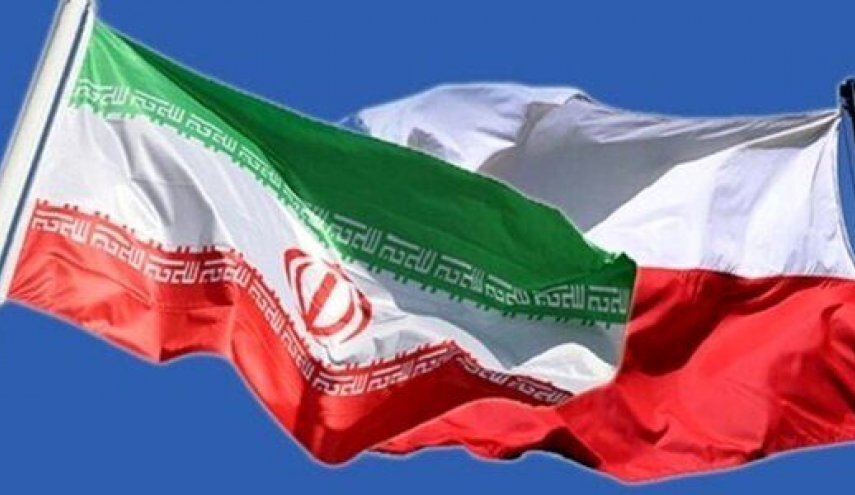Iran embassy in Warsaw announces how Iranians trapped in Ukraine could return home

TEHRAN - The embassy of the Islamic Republic of Iran in Warsaw has announced how Iranian nationals residing in Ukraine can return home via Poland’s territory.
The embassy of Iran in Warsaw said it took the initiative to form a committee to support the Iranian nationals on the first day of the crisis and the declaration of a state of emergency in Ukraine.
The embassy noted that according to the announcement of the Polish Ministry of the Interior, there are 8 border points to enter Poland for Ukrainian nationals and others. It said foreign nationals do not need entry visas.
It is enough just to hold a notarized passport and legal residence in Ukraine and they can stay in Poland for a period of 15 days, the ministry added.
The Iranian embassy said the Polish ministry stated that there is no need for a person entering Poland to receive anti-Corona vaccine or the PCR vaccination certificate, and that foreign nationals can come in their cars.
The embassy indicated that coordination is underway with the Polish side to obtain the necessary permission to organize direct flights to transport Iranian nationals residing in Ukraine from Warsaw to Tehran.
Iran’s ambassador to Ukraine paid a visit on Thursday night to the shelter Iranian students in the country are taking refuge in as arrangements were being made to transfer them home.
Manouchehr Moradi visited the residence of some Iranian students living in Kyiv and spoke closely with them and learned about their problems.
The visit came after some students posted footage and videos on social media platforms voicing concerns about their safety in Ukraine.
Also, the Iranian embassy in Kyiv announced that it continues to provide services to compatriots to save them from the current situation and is ready to respond to and address their requests.
Saeed Khatibzadeh, the spokesman for the Ministry of Foreign Affairs, answering journalists’ questions about the ministry’s measures to handle the affairs of the Iranian expatriates in Ukraine amid the heightening of tensions, said, “With the start of the crisis and the ratcheting up of the tensions in the region, the Islamic Republic’s Ministry of Foreign Affairs and embassy in Kyiv have taken extensive and various measures in this regard.”
He added, “Given the precise predictions made at the Ministry of Foreign Affairs, and since pertinent organizations and institutions had been notified of the developments that we are today witnessing as the most likely scenario, a crisis headquarters was swiftly established at the Ministry of Foreign Affairs, and efforts were made so as to establish the highest coordination between the staff and in line with an objective of better managing the situation and, if necessary, facilitate the evacuation of Iranian nationals and university students.”
The spokesman said, “Dr. Amir Abdollahian, the minister of foreign affairs, held conversations with the foreign ministers of both countries. He also made several telephone calls to our country’s ambassador to Kiev and emphasized the relevant instructions as to the offering of urgent and special services to the Iranians expatriates; and most recently, he held a telephone conversation with Hungary’s foreign minister to facilitate the exit of Iranians through the border of that country.”
Khatibzadeh stressed, “Among the other measures taken by the ministry are: Following up on the condition of the Iranian expatriates in Ukraine; updating the personal and contact information and addresses of the Iranian expatriates and creating a related data bank; establishing a 24/7 hotline for the Iranian expatriates to be able to contact the Department of Consular Affairs, and also similar measures taken by the Iranian embassy in Kiev, as well as preparing and publication of the embassy announcements regarding the need for vigilance and preparedness for emergency situations.”
He noted, “Furthermore, our country’s embassy in Kyiv has been in constant contact with all the Iranian nationals, especially the university students, and will be replying to the questions and requests of the dear Iranians via telephone calls and in person. Our other measures include: Receiving the views and requests of the Iranians via phone calls and the embassy’s web pages; offering urgent consular services to some applicants round the clock; addressing the questions and concerns of the Iranians and the university students on different social media platforms; and holding the meetings of our country’s ambassador with different groups of Iranian university students.”
